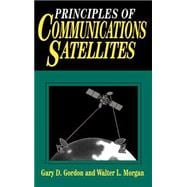
What is included with this book?
Gary D. Gordon is an Aerospace Consultant in Washington Grove, MD. He received his PhD in physics from Harvard University in 1954. Dr. Gordon was 14 years at COMSAT Laboratories as Senior Staff Scientist in the Spacecraft Laboratory. He was a member of the initial Editorial Board of the COMSAT Technical Review. He has taught courses on Spacecraft Technology, Satellite Orbits, Satellite Reliability, Spacecraft Thermal Design, and Computer Programming. He has made a 26-hour videotape on Spacecraft Technology. Earlier, at GE's Astro Space Division, he contributed to thermal design of the first weather satellite and was responsible for the thermal design of the Relay communications satellite. He was active in a GE education program at the corporate level teaching managers modern physics, semiconductor devices and computers. He has written technical papers on electric propulsion, geodetic use of satellites, spacecraft thermal design and a proposed 30 kW solar array.
Walter L. Morgan is the President and a Senior Consultant at the Communications Center of Clarksburg, MD. Mr. Morgan has been in key positions in the design and use of terrestrial and satellite communications throughout his entire career. A graduate of Carnegie-Mellon University, he first worked at the David Sarnoff Research Center and then at GE's Astro Space Division. At COMSAT Laboratories he became a Senior Staff Scientist. At the Communications Center he and his staff provide clients information on the developments, trends and forecasts in the telecommunications industries. He is the author of over 150 technical and economic papers, the Consulting Editor to Satellite Communications magazine, and Editor of the Telecommunique newsletter.
|
|||
|
|||
|
|||
|
|||
|
|||
|
|||
|
|||
|
|||
|
|||
|
|||
|
|||
|
|||
|
|||
|
|||
|
|||
|
|||
|
|||
|
The New copy of this book will include any supplemental materials advertised. Please check the title of the book to determine if it should include any access cards, study guides, lab manuals, CDs, etc.
The Used, Rental and eBook copies of this book are not guaranteed to include any supplemental materials. Typically, only the book itself is included. This is true even if the title states it includes any access cards, study guides, lab manuals, CDs, etc.